Not A Gator - Blog Posts
Are you Exploring your Concepts to their Fullest?
There’s nothing worse than getting hooked into a piece of media by a really cool concept—only to be let down through shallow exploration. The entire story I’m distracted from what’s happening by what could have been had they gone more in depth into what they promised.
The good news is, avoiding this in your own writing is fairly easy as long as you remember to continuously do one thing: ask questions.
I talk about this a lot, but making room to explore the implications (especially of worldbuilding and events, not just actions) is only going to deepen your narrative and create a more satisfying, well-rounded world. As well, the decisions you make here are going to set the use of your concept apart from the other stories we’ve seen it in.
If your concept is a character who has lived on a boat their entire life finally hits the shore, think about what it would mean for someone to have never seen land—how would they feel about trees, valleys, mountains, buildings. They would probably be very familiar with stars and constellations, navigation, the dark, swimming, fishing, and danger surrounding the water. They may prefer cramped spaces, sleeping under a low roof, a gentle rocking or white noise.
If there’s magic in the world but say only some people have it, how does that impact politics, healthcare, parenting? Do people have biases against magic users or non-magic users? Are there laws set to prevent or limit magic use in certain places, or at all?
You could ask endless amounts of questions about a concept, and you should. If you introduce something big, exciting, and full of consequences—you must also be willing to commit to it, and explore it to its fullest.
Good luck! If you feel like sharing, tag a concept you’ve come up with and some interesting implications that go with it!
Hello! Do you have any advice/resources on how to write sounds? Speaking and singing in particular but also maybe sounds at different volumes and sounds that could be considered "noise."
Describing Sounds Using Sound Words
Description of sound is all about knowing sound-related vocabulary. Here's a mini-list to get you started, but you can do some research to learn more. Also, be sure to look up these words before using them to make sure they're right for the context.
High Volume - blaring, blasting, booming, bray, din, deafening, ear-piercing, ear-popping, earsplitting, full volume, loud, pealing, roaring, sonorous, thundering, thunderous
Low Volume - buzz, faint, gentle, hushed, low, muffled, murmur, muted, peaceful, quiet, soft, subdued, whisper
Noise - cacophony, clamor, clatter, commotion, discord, disquiet, fracas, hullabaloo, racket, ruckus, uproar Pitch and Tone - atonal, discordant, dulcet, harmonic, harsh, high-frequency, low-frequency, mellow, resonant, sonic, soprano, tenor, timbre
Rhythm - beat, cadence, flow, lilt, lyrical, measured, melodic, metered, monotone, pulsing, staccato, stutter, tempo
Sounds - babble, bang, bark, beep, belch, boom, burble, burp, chirr, chirp, clack, clatter, clang, clank, click, clink, clip-clop, clomp, crackle, crash, creak, ding, echo, groan, gurgle, hiss, hoot, hum, jangle, jingle, kerplunk, howl, melodic, mewl, moan, murmur, patter, pitter-patter, peal, plop, pop, purr, rattle, roar, rumble, rustle, screech, shriek, sizzle, splash, splat, swoosh, squawk, squeak, strum, thud, thrum, thump, wail, whimper, whinny, whine, whir, whistle, whiz, yelp, yowl, zing How to Research Sounds - If you're struggling to describe the sound of a particular thing, like "thunder," go to Google and type in, "how to describe the sound of thunder" and look for inspiration. You can also search for things like "horse sounds" or "what sounds do cars make?"
Also, two previous posts specific to describing the sound of singing and music:
Describing Music How to Describe a Singing Voice
I hope that helps!
•••••••••••••••••••••••••••••••••
I’ve been writing seriously for over 30 years and love to share what I’ve learned. Have a writing question? My inbox is always open!
Learn more about WQA
Visit my Master List of Top Posts
Go to ko-fi.com/wqa to buy me coffee or see my commissions
so uh this is an interesting one. i don't normally do these but this would technically mean that this:

would be in Monster Hunter Rise. either that or Deep Rock galactic, i'd need to check Steam to see which one of those i technically played last.
Thinking of this little puffball decked out in Monster Hunting gear ready to capture a monster like Mitsusune or the whirlwind monkey guy (etc.) or carrying a big ol' Gold Chunk/the big green ore stuff/ the big purple ore stuff/ glitchy cube is insanely fun to think about. i don't know if i could ever draw that at the skill level i'm at right now, but it is now taking up space in my head.
The last character you drew/wrote about is now stuck in the last game you played. How screwed are they?
DESCRIBING THE PHYSICAL ATTRIBUTES OF CHARACTERS:
Body
descriptors; ample, athletic, barrel-chested, beefy, blocky, bony, brawny, buff, burly, chubby, chiseled, coltish, curvy, fat, fit, herculean, hulking, lanky, lean, long, long-legged, lush, medium build, muscular, narrow, overweight, plump, pot-bellied, pudgy, round, skeletal, skinny, slender, slim, stocky, strong, stout, strong, taut, toned, wide.
Eyebrows
descriptors; bushy, dark, faint, furry, long, plucked, raised, seductive, shaved, short, sleek, sparse, thin, unruly.
shape; arched, diagonal, peaked, round, s-shaped, straight.
Ears
shape; attached lobe, broad lobe, narrow, pointed, round, square, sticking-out.
Eyes
colour; albino, blue (azure, baby blue, caribbean blue, cobalt, ice blue, light blue, midnight, ocean blue, sky blue, steel blue, storm blue,) brown (amber, dark brown, chestnut, chocolate, ebony, gold, hazel, honey, light brown, mocha, pale gold, sable, sepia, teakwood, topaz, whiskey,) gray (concrete gray, marble, misty gray, raincloud, satin gray, smoky, sterling, sugar gray), green (aquamarine, emerald, evergreen, forest green, jade green, leaf green, olive, moss green, sea green, teal, vale).
descriptors; bedroom, bright, cat-like, dull, glittering, red-rimmed, sharp, small, squinty, sunken, sparkling, teary.
positioning/shape; almond, close-set, cross, deep-set, downturned, heavy-lidded, hooded, monolid, round, slanted, upturned, wide-set.
Face
descriptors; angular, cat-like, hallow, sculpted, sharp, wolfish.
shape; chubby, diamond, heart-shaped, long, narrow, oblong, oval, rectangle, round, square, thin, triangle.
Facial Hair
beard; chin curtain, classic, circle, ducktail, dutch, french fork, garibaldi, goatee, hipster, neckbeard, old dutch, spade, stubble, verdi, winter.
clean-shaven
moustache; anchor, brush, english, fu manchu, handlebar, hooked, horseshoe, imperial, lampshade, mistletoe, pencil, toothbrush, walrus.
sideburns; chin strap, mutton chops.
Hair
colour; blonde (ash blonde, golden blonde, beige, honey, platinum blonde, reddish blonde, strawberry-blonde, sunflower blonde,) brown (amber, butterscotch, caramel, champagne, cool brown, golden brown, chocolate, cinnamon, mahogany,) red (apricot, auburn, copper, ginger, titain-haired,), black (expresso, inky-black, jet black, raven, soft black) grey (charcoal gray, salt-and-pepper, silver, steel gray,), white (bleached, snow-white).
descriptors; bedhead, dull, dry, fine, full, layered, limp, messy, neat, oily, shaggy, shinny, slick, smooth, spiky, tangled, thick, thin, thinning, tousled, wispy, wild, windblown.
length; ankle length, bald, buzzed, collar length, ear length, floor length, hip length, mid-back length, neck length, shaved, shoulder length, waist length.
type; beach waves, bushy, curly, frizzy, natural, permed, puffy, ringlets, spiral, straight, thick, thin, wavy.
Hands; calloused, clammy, delicate, elegant, large, plump, rough, small, smooth, square, sturdy, strong.
Fingernails; acrylic, bitten, chipped, curved, claw-like, dirty, fake, grimy, long, manicured, painted, peeling, pointed, ragged, short, uneven.
Fingers; arthritic, cold, elegant, fat, greasy, knobby, slender, stubby.
Lips/Mouth
colour (lipstick); brown (caramel, coffee, nude, nutmeg,) pink (deep rose, fuchsia, magenta, pale peach, raspberry, rose, ) purple (black cherry, plum, violet, wine,) red (deep red, ruby.)
descriptors; chapped, cracked, dry, full, glossy, lush, narrow, pierced, scabby, small, soft, split, swollen, thin, uneven, wide, wrinkled.
shape; bottom-heavy, bow-turned, cupid’s bow, downturned, oval, pouty, rosebud, sharp, top-heavy.
Nose
descriptors; broad, broken, crooked, dainty, droopy, hooked, long, narrow, pointed, raised, round, short, strong, stubby, thin, turned-up, wide.
shape; button, flared, grecian, hawk, roman.
Skin
descriptors; blemished, bruised, chalky, clear, dewy, dimpled, dirty, dry, flaky, flawless, freckled, glowing, hairy, itchy, lined, oily, pimply, rashy, rough, sagging, satiny, scarred, scratched, smooth, splotchy, spotted, tattooed, uneven, wrinkly.
complexion; black, bronzed, brown, dark, fair, ivory, light, medium, olive, pale, peach, porcelain, rosy, tan, white.
more medical tips to help with writing? more medical tips in general? yummy. please send more
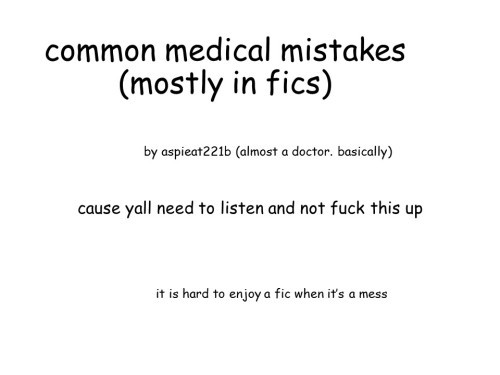
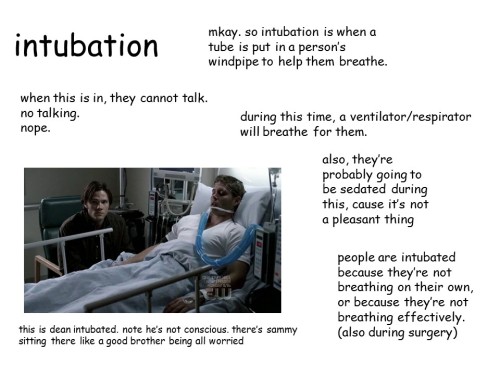
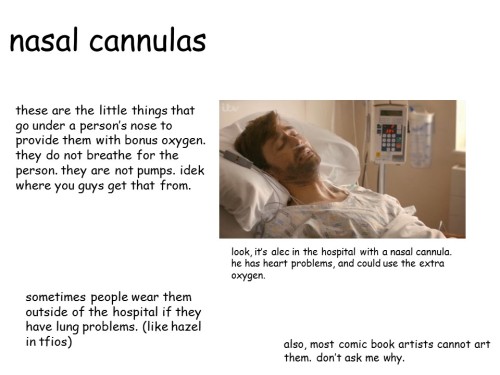
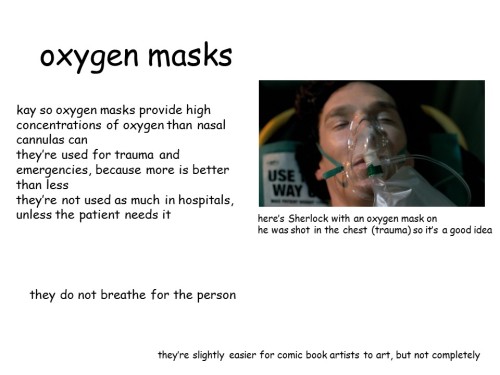


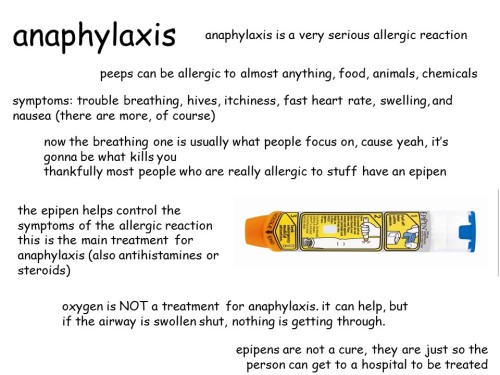
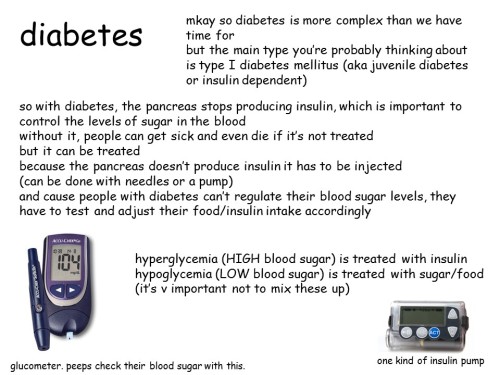
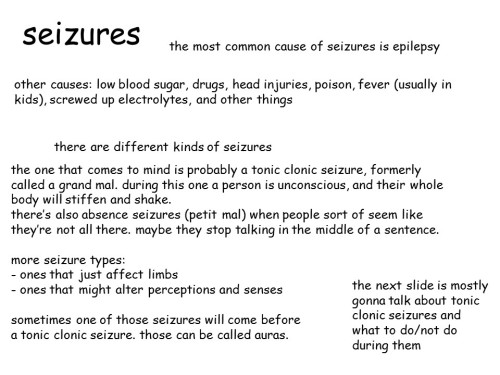
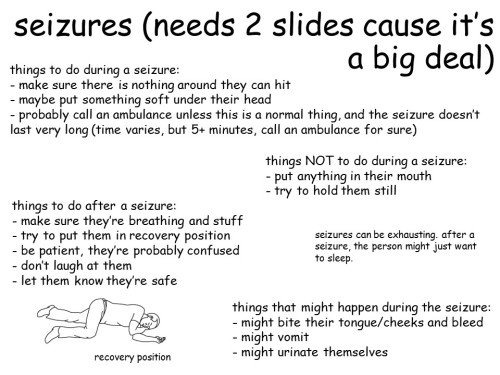
So I’ve noticed a bunch of medical errors in fics I read, so I decided to post this handy guide to some of the most common errors and some background on basic medical things.
ps- they are not medical treatment or first aid advice. I’m not actually a doctor. yet. but I am certified in first aid. this is just so your writing can be more realistic.
for my male audience

1918 Two women sharpening an axe. From My Vintage Dreams, FB.
ok ive actually been wanting to ask this for a while; can getting stabbed in the stomach/abdomen really cause blood to come out of the mouth or is that just a dumb trope for The Drama?
Yes, but also, yes.
There are a lot of injuries that can result in blood in your respiratory system. The most obvious would be puncturing a lung, or bruising a lung (called a pulmonary contusion.) Also, bleeding from the sinuses that gets into the throat can result in coughing up blood (though this one is pretty benign.) As a general rule, you do not want fluid in your lungs at all, and fluid that is prone to coagulating, blocking your lungs' ability to absorb oxygen is a very bad thing.
And it gets worse, for your body to effectively expel a large glob of blood, the way you usually see in films, you would need a lot of blood in your lungs. On their own, even relatively minor pulmonary contusions have a pretty significant mortality rate. What this means is, if you're ever coughing up blood, there's about a 30% chance you're going to die.
Also as a quick aside, particularly violent coughing can result in some minor spotting from broken blood vessels. It's not inherently life threatening, but it is something that should be checked out quickly, because it can be a symptom of something worse. (Such as lung cancer.)
The way these injuries tend to get inflicted is a mixed bag. When someone's been getting beaten (particularly in the upper torso), they've been in an explosion, or a car accident, then it's not that unreasonable for them to be coughing up blood. A pulmonary contusion is a pretty plausible injury in those circumstances. And again, that pulmonary contusion could easily end up being the fatal injury.
When a character has been shot or stabbed in the stomach, then it's less plausible. There's a bit of a distinction here, because if you have serious hemorrhaging from internal injuries and that gets into your stomach, it's quite possible you'd vomit blood. You don't see this very often in film, coughing is far more popular, and in a lot of cases, you'll see characters coughing up blood when they should be vomiting. As with pulmonary contusions, this is not a symptom to screw around with, if someone's vomiting blood, they're at very serious risk of dying, and need immediate medical care.
So, is it just used for drama? Yeah. It is. Stage coughing is pretty easy for an actor, and a little bit of slight of hand with a blood pack can let them get a nice death scene in. It's not about the realism of the injury, and in most cases, aside from coughing up blood, they're not exhibiting any of the other associated symptoms (including the ones that are more common.) When someone's coughing up blood like this, they're also suffocating, because their lung can't absorb oxygen out of the air. As a result, they'll frequently start hyperventilating. Which, you'll never see in one of these scenes. The actor will lay there, deliver their lines, feign pain, and then spit up a red dye pack and relax. Which, that's not how this injury works at all.
So, yes, it is a real injury, but also, yes, this is something that is used for dramatic effect and not out of any interest in realism.
-Starke
This blog is supported through Patreon. Patrons get access to new posts three days early, and direct access to us through Discord. If you're already a Patron, thank you. If you’d like to support us, please consider becoming a Patron.
10 Ways to Avoid Writing Insecurity
by Sean Platt
Face it. There are few things as intimidating as the blinding white of a blank page.
It makes no difference if it’s an empty sheet lying on our desk, or a blank screen, aiming between our eyes. Defeating “nothing” by subjecting it to “something” with our words is what gives a writer breath.
Whether to pay our bills or please our muse, eventually words must spill. Here are ten tips to help plow past writing insecurity.
1. Appreciate your unique perspective.
No one sees the world exactly like you, and no one can articulate it in quite the same way. The oldest stories are told and then retold, not because they invent new things to say, but because inside a timeless message, each storyteller may weave a million individual moments.
2. Writing is conversation.
The more we speak, the more we understand the fundamentals. Writing is no different. Most of the time, our brains operate on the surface, doing only what must be done. We may adopt the push and pull of conversation to push our voice further. Writing, much like a good discussion, can help us dig a little deeper.
3. Allow your influences to shape your voice, not drown it.
Creativity is borrowed. None of us formed our thoughts in a vacuum, and all of us were subject to a myriad of different models. Inspiration lives inside us, and our subconscious never forgets. We need not copy our heroes, their hand is always there to guide us.
4. Believe.
You can do it! Fear is a set of handcuffs, keeping our fingers from flight. If you don’t believe in yourself, then no one else will either.
5. Ignore the rules.
Rules can be intimidating; intimidation a shortcut to insecurity. You may not know precisely when to use a comma and when to use parentheses, but that decision will never equal the importance of a good idea. We first need broad strokes to lend foundation. We wash our world in red, blue, yellow, and green. Chartreuse and vermillion come later.
6. Write for someone specific.
Nothing will crystallize your voice, like scribbling for a single set of eyes. It doesn’t matter who it is, and it doesn’t have to be the same person twice. Write as though you are speaking to them. Design your jokes to make them smile, your words to feel them near.
7. Write without pause, return later.
Alone with our thoughts, it is easy to think the worst, but we should never allow them to slow us down. When our inner whisper begins to shout, we must lower our nose and keep on going. Once drained, leave. Return later, and you’ll likely be surprised at what you’ve written.
8. Take pride.
Our words are simply a more permanent version of our thought. Be proud of who you are, and know that what you write is a reflection of you.
9. Even Stephen King writes with his door closed.
No one gets it right the first time through. Just start. Even if the world will be watching once you are finished, no one is watching you now. Close the door, breathe the silence, and let what’s inside you come out to play.
10. Dip your toe, then jump… the water’s fine.
The first keystroke is always the hardest, but begetting something from nothing is what separates us from the lower species (well, that and opposable thumbs). Pushing past our fear and into uncertainty, is when we’re most likely to find ourselves.
ahh, i do adore the old days of pokemon where you'd get a ton of odd glitches like this happening.
There's also the glitch in Stadium with at least a few glitch mons where if you look at them they turn into a Rhydon.
pokémon evolution chains we need

The merit of your writing.
So, you’ve read something that has resonated with you. It’s everything you’ve wanted in terms of characters, prose, plot and pace. It’s the best you’ve read in years. You reread your favourite lines. You have to take a break just to absorb every meticulously crafted line. You are in awe of how something so small can seem to take up so much space.
And in a perfect world, it would inspire you to go out and create. To work on that story that is languishing in your save files, to pick up that WIP you abandoned, to make you want to write something different and new and better.
Instead, it makes you feel inferior. The words are too good. You could never write like that. The characters are too perfect. You don’t have that insight. The story is too captivating. Your ideas are boring, cliche, plain. The insight is remarkable. You can barely string a thought together coherently.
Why even bother, you think.
Don’t fall into that trap. I have been there so many times. I have abandoned writing for years because of “why even bother”. I have let it destroy my confidence, only to patch it back up in a cheap imitation of what it once was, just to let it invade my thoughts again. I have questioned every thing I’ve written, every choice, every line, because why even bother if someone is so much better.
YOUR WRITING HAS MERIT. What you don’t realize is that it’s not in terms of better, but different. Different style, different story, different interpretation, different mind.
Someone out there will love the way you describe the night sky in poetry. Someone out there will love the way you describe the look on someone’s face when their heart breaks. Someone out there will love your idea, that strange one that seems impossible or already done, because it’s new and exciting or they love endless amounts of that same story. Someone out there will love your interpretation of that character, whether more gentle or bitter or broken or healed. Someone out there will love the words you write, the grandiose use of adverbs (my guilt) or the minimal scattering of dialogue. Someone out there will love your abundance or lack of something you saw in that story you so loved, the one that rendered you speechless and snuffed out your fire.
Someone out there will love your words. And you need to share them.
Speaking as a writer, no one sets out to create something to discourage others. No one wants to dominate their corner and be the only one there. No one wants to be alone in their craft. If they do, they are doing it for the wrong reasons. Speaking as a writer, I would never want you to read my writing and think, why bother.
I want you to think, why bother waiting?
Your story matters. Your writing matters. It’s beautiful and defined and gorgeous and a work in progress and growing and already there and insightful and mysterious: it all has merit.
Never stop. Never stop writing and practicing and doing and creating and learning and loving the words you weave.
You may think someone has done it more beautifully or better or too many times or never because who wants to read it?
They maybe have done all those things, but they lack one thing: they haven’t done it like you have.
show, don't tell:
anticipation - bouncing legs - darting eyes - breathing deeply - useless / mindless tasks - eyes on the clock - checking and re-checking
frustration - grumbling - heavy footsteps - hot flush - narrowed eyes - pointing fingers - pacing / stomping
sadness - eyes filling up with tears - blinking quickly - hiccuped breaths - face turned away - red / burning cheeks - short sentences with gulps
happiness - smiling / cheeks hurting - animated - chest hurts from laughing - rapid movements - eye contact - quick speaking
boredom - complaining - sighing - grumbling - pacing - leg bouncing - picking at nails
fear - quick heartbeat - shaking / clammy hands - pinching self - tuck away - closing eyes - clenched hands
disappointment - no eye contact - hard swallow - clenched hands - tears, occasionally - mhm-hmm
tiredness - spacing out - eyes closing - nodding head absently - long sighs - no eye contact - grim smile
confidence - prolonged eye contact - appreciates instead of apologizing - active listening - shoulders back - micro reactions
How to Do World-Building Research
Whether you’re building a fantasy world from complete scratch, or mentally designing the suburban house your very realistic story will take place in, at a certain point in your writing process you’ll need to plan out your story world. Here are a few world-building research methods to get you started:
Ask Questions
Ask anything and everything you can about your world. Each story will require different lines of inquiry. Listen to your story and follow the questions it seems to want you to investigate. What kind of car did your main character’s grandpa drive? How was the president elected? Why is everyone so obsessed with peanuts? The answers might appear in the story you’ve already written, in your imagination, or you may have to delve deeper into your research to find them.
Draw a Map or Create a Model
Is your story world so complicated it’s making your head spin? Get out paper or other materials and make a visual representation of it. This could mean making a floor plan of your main character’s house, or mapping out an entire town, country, or kingdom. Physically creating your world is research in itself, but it can also guide you to new lines of questioning. You might discover that your story world contains a lot of lakes, or elk, or antiques, which in turn pushes you to research craters, or migratory patterns, or the history of antiques, which then leads you back to questions about meteors, or a lineage of hunters, or a family history of con artists, etc.
Outside Research
You may need to read history books, watch documentaries, conduct interviews, research online, or conduct first-hand research to get your questions answered. If your story takes place in Kansas and you’ve never been there, you could plan a trip, watch movies or read books set in Kansas, or talk to people who have lived there. Remember to record sensory details as well as facts. How does the air feel? What colors are prominent?
Take Notes
No matter what research method you use, take lots of notes. These can be straightforward recordings of the facts, or more creative expressions of what you encounter. Maybe something you stumble across will inspire you to write a poem, make a drawing, take a photo, create a mood board, or outline a new character. Keep in mind that your best ideas might come when you’re not actively researching, so keep a notebook or device nearby to record ideas that pop up when you’re not expecting them.
Use Your Own Experiences, Opinions, Ideas, and Imagination
Research doesn’t just mean looking into what other people say, think, or feel about a time, place, or topic. It can also mean exploring your own thoughts and perceptions! Say you’re researching a story that takes place in Oklahoma during the Great Depression. You’ll want to read history books, conduct interviews, watch films and documentaries, read novels set in that time period, research online, and perhaps even travel. But while you’re doing this, also pay attention to how you think and feel about the information you’re gathering. What details stand out to you? Does something you encounter make you mad? Why? What interests you about this time and place—and what bores you to tears?
When to Stop Researching
Some writers absolutely love story building… to the point that they never want to stop researching and actually write or revise their story! If you notice you’re procrastinating by languishing in the research stage, it’s time to get back to your story. As you return to the writing, you’ll probably find that you need go back to story building, then back to the writing, then to story building again. So don’t be too nervous about putting down your research: You can always go back and revise your world if you need to.
Of course, it’s completely acceptable to be obsessed with story building. All writers have their own attachments—elements of story telling that they love above all others. Some people get obsessed with a character, a plot, a setting, a theme… So if you’re a writer who loves your worlds, don’t be afraid to own it. Lots of amazing writers— especially science fiction and fantasy writers—are known for being huge world building geeks. If that’s what excites you, indulge! Just be aware of when you might be using it as a crutch because you’re nervous about composing or revising your story, and challenge yourself to move on—knowing, of course, that you can always come back to it if you need to.
Hope this helps!
ah, don'tcha just love language. one small mixup and the entire context is suddenly way different.

public service announcement
Hello! Sorry for the odd request, but I am wondering if you have any resource list of those unique words to describe complex feelings of the human experience? Eg words like Sonder, Chrysalism, Anemoia, and Ambedo etc. I've been trying to Google around for a comprehensive list but I only find a selective few on sites but nothing extensive. It would be of great help if you have any resources to share! Thank you!
Perhaps you've already seen these then,
40 Words for Emotions You've Felt But Couldn't Explain
15 Obscure Words for Everyday Feelings And Emotions (personal favorite is "crapulence")
26 Emotionally Intelligent Words From Around the World (non-English words for universal feelings)
I would like to point too many flowery words can harm rather than help. However, if you're writing a character or tone that is just begging for some out-there vocabulary, by all means!
Here are some other links to common emotional adjectives.
Karla M Claren - Emotional Vocabulary Page
380 High Emotion Persuasive Words
---
+ Please review my Ask Policy before sending in your ask. Thank you!
+ If you appreciate my updates and replies, please consider sending a little thank you and Buy Me A Coffee!
+ HEY, Writers! other social media: AO3 - Wattpad - Unsplash - Pinterest
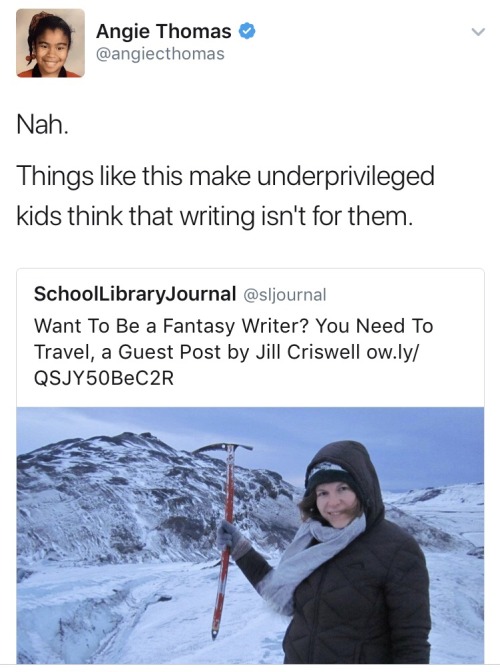
TRUTH. What you need is imagination, and you don’t need to go anywhere to use it.
People talk a lot about how reading is necessary for writing, but when you really want to improve your writing, it’s important to go beyond just simple reading. Here are some things to do when reading:
Note how they begin and end the story. There are a ton of rather contradictory pieces of advice about starting stories, so see how they do it in the stories you enjoy. Don’t only look at the most popular stories, but look at your more obscure favorites.
See what strikes you. Is it fast or complicated scenes with a lot of emotions? Is it stark lines? Pithy dialogue? What do you remember the next day?
Pay attention to different styles. It’s not just whether they use past or present tense, first or third person. It’s whether the writing is more neutral or deeper inside character’s heads. Do they use italics? Parentheses? Other interesting stylistic choices? Take the ones you like and try them out in your own writing. See what works and what doesn’t.
Keep track of how they deal with other characters. Do we see a lot of secondary character each for very brief periods of time or are there a couple that show up a lot? How much information do we get about secondary characters? Do they have their own plots or do their plots revolve entirely around the main characters?
Count how many plots there are. Is there just one main plot or are there multiple subplots? Are the storylines mostly plot-based or character-based?
Pay attention to what you don’t like. If you don’t like what’s going on in a book or even just a scene, note what it is. Does the dialogue feel awkward? Are the characters inconsistent? Does the plot feel too convenient or cobbled together? Does the wording just feel off? See if you can spot those issues in your own writing, especially when reading a completed draft or beginning a later draft.
i've been writing a book and the feedback i've gotten from family members is that i have been using a lot of description, that the plot is moving along pretty slowly, and "something" needs to happen. do you have any tips or advice on moving plots along quicker in order to keep the reader's attention? thanks so much!!
How to Move a Story Forward
When your character is just milling about in their world describing what they see, what they’re doing, and what’s happening to them, that’s not really a plot. It’s just a random string of events happening to your character, and typically it doesn’t make for very interesting reading. This kind of story moves slowly because nothing’s actually happening. Imagine following an average person through their average day versus following Katniss Everdeen through day three of The Hunger Games. It’s a big difference. And that’s not to say every plot has to be as exciting or dramatic as The Hunger Games, but there does need to be a conflict.
So, the first thing you have to do is sit down and figure out what your story is really about. What is going on in this person’s life that is worth writing about? Is there some sort of inner conflict they’re struggling with? Or is there an external conflict of some kind? Usually there are both with the focus being more on one than the other.
How stories begin…
Most stories start when a character’s life is still normal but just about to change. Katniss was getting ready to go hunting with Gale. Bella was settling in at her new high school after moving in with her dad, and Harry Potter was just living life as the boy in the cupboard.
What happens next…
And then something happens. This is called the “inciting incident” because it “incites” the conflict and brings on the important events of the story. Katniss volunteers as tribute when her sister is drafted into The Hunger Games. Bella meets Edward Cullen and an instant attraction develops between them. Harry Potter receives his letter to Hogwarts.
The character responds and forms a goal…
The character’s normal life has been turned upside down. Now what? For Katniss, the most important thing in the world to her was the safety and well being of her sister and mother, and since she is the one who keeps them safe and fed, her survival of The Hunger Games is vital. That’s her motivation, and her goal is to win the game. Bella becomes obsessed with learning more about Edward and who, or what, he is, and she falls for him and the magic his world brings into her otherwise boring life. Being part of that world is her motivation, staying alive in the process is her goal. Harry finally has a ticket out of his life of being abused and unloved, and he has a chance to connect with the legacy his parents left behind. Leaving his old life behind and embracing this new one is is motivation. Surviving his first year at Hogwarts is his goal.
But goals aren’t supposed to be easy to reach…
If the character can just sail smoothly right up to their goal, mission accomplished, that makes for a pretty boring story. You never hear people say, “WOW! THAT WAS AN INCREDIBLE GAME!” when the score was 20 to nothing. What makes the game exciting is when the teams are neck and neck, one getting ahead for a little while, then the other one being ahead for a little while. It’s the trying, and often failing, to get over obstacles that makes the conflict more interesting. In a lot of ways, that struggle actually is the conflict. What obstacles stand in the way of your character and their goal, and who (or what) put them there? For Katinss, the obstacles were the other tributes and all the frightening things added to the game by the gamemakers. For Bella, it was the nomad vampires who caused trouble at first for fun, and then later for revenge. The obstacles Harry faces are partly due to conflict with other students and teachers, and partly due to the first “shots fired” in what would become the overarching battle against Voldemort.
You win some, you lose some…
And it’s important that you show some wins along with the failures. Sometimes the character tries to overcome an obstacle, fails, tries again and succeeds. Sometimes they fail and have to come up with a work around. Either way, the fails add to the tension and drama while the wins add excitement and interest in what happens next.
The final showdown…
Eventually you get to the big showdown, aka “the climax.” This is when your character faces down the biggest challenge that stands in the way of reaching their goal. This could be an epic battle between your character and the villain. It could be the moment where your character realizes they’re in love with their best friend and they chase them to the airport to admit their undying love for them before they move away. Or it could be surviving one last night of a terrible storm before crawling out of hiding to assess the damage. Whatever it is, the culmination of that moment is achieving or failing to achieve their goal.
The dust settles…
Whatever crazy chain of events was set off by the inciting incident, they’ve come to an end now thanks to the actions of your protagonist and their friends. Or, if they haven’t come to an end, they’ve at least been waylaid for now, or things are at least moving in a better direction. Now your characters can clean up, rebuild, mend wounds, tie up loose threads, and get back to life as normal. Or, in the case of a series, they can re-group and figure out what happens next. And that’s the end.
… But some stories happen on the inside.
Some stories are more about people and their experiences than about any big crazy thing that happens to them. Stories like these are more emotional and are more about dealing with the inner conflict than an outer one. But even in stories like these, you’ll still have a similar structure to what I laid out above. It’s just a lot looser and tied up with an emotional journey rather than the physical one. Which isn’t to say they can’t have a parallel physical journey, but the important stuff is happening on the inside.
Whichever kind of story you’re writing, if you make sure you’re hitting the important points I’ve laid out above, whether they relate to an internal conflict, an external conflict, or a little of both, you can be sure you’re writing a story that is moving forward and will keep your audience engaged. Everything I’ve outlined above is the “something” that needs to happen to make your story interesting.
Good luck! :)
I find it rather charming, to be honest. This is one of those smooth rocks you find in a garden or by a riverbed, the ones that feel good when they're put in the palm of your hand. And its out there all by its lonesome, spinning like when you get into your parent's office chair and just make yourself go as fast as possible (possibly with a friend). Keep on spinning, you funky little dwarf planet you.
And according to NASA, Haumea has rings.
Ok so Haumea, a dwarf planet beyond Pluto, spins so fast it gets elongated like this. This is just what it looks like. Something deeply unsettles me looking at it. Terrifying.



happy vlaentine :)
Who? What? Clearing up Ambiguity in Your Story
Most of the confusing or ambiguous parts of your plot should get cleared up during the story- and scene-level edit of your book. But ambiguity sneaks into stories on the sentence-level, too.
In your sentence-level edit, you’ll want to check for ambiguous words, pronouns, language, and/or phrasing—anything that creates unintentional confusion for your reader.
Ambiguous Pronouns
Anytime you use it, its, this, that, he, she, him, her, his, hers, they, theirs, etc. make sure it’s crystal clear who or what you’re referring to.
Karen took the garlic, carrots, and lemon juice out of the fridge, but according to the recipe it wasn’t enough.
What wasn’t enough? The garlic? Carrots? Lemon juice? All three? To clarify, keep in mind that a pronoun refers to the last named person (for he, she, they) or object (for it, this, that). So in the sentence:
Karen and Diane unpacked her groceries into the fridge.
“Her” would refer to Diane, the last named female person. If those are Karen’s groceries, you’d need to write:
Karen and Diane unpacked Karen’s groceries into the fridge.
It may seem like a minor concern, but ambiguous pronouns can cause serious confusion for the reader, especially if you’re trying to show an important event.
Before: Lars threw the vase at the window, and it broke.
After: The vase broke when Lars threw it at the window.
In the first example, we can’t tell what broke. Was it the vase? The window? The revision, though not exactly poetic, is more clear.
Keep in mind that you can rewrite or reorganize whole passages to remove ambiguity, reworking the problem area until it adheres to your unique style and purposes. These are just examples to guide you, not instructions on how exactly to reword your sentences.
Common Ambiguous Pronouns:
• It • Its • This • That • Those • These • He • She • Him • Her • His • Hers • They • Theirs
Ambiguous Words
Unless the character is truly uncertain, or you want the reader to be uncertain what you’re referring to, avoid using ambiguous words like “something,” “somewhere,” “thing,” “stuff,” etc.
Before: There was something about him she despised.
After: She despised his beached-blonde hair, and his arrogance.
Be specific! If your character really doesn’t know what she hates about this person, “something” could work. But make sure you’re not being vague out of habit or laziness.
Before: She picked up her stuff from the dry cleaners.
After: She picked up her suit from the dry cleaners.
“Suit” is a better choice here because it’s specific, concrete, and visualize-able. We can’t really get a mental picture of “stuff.”
Common Ambiguous Words:
• Thing • Something • Anything • Somewhere • Stuff • Nothing
When Ambiguity Works
Ambiguity has its place if your character is truly uncertain or if you want the reader to be uncertain.
In Jeanette Winterson’s Written on the Body, the main character is never named or gendered. This was an intentional choice by the writer, who wanted the reader to be unclear about the narrator’s gender and sexual identity.
Similarly, writers of horror, mystery, or magical realism who are trying to create a mysterious mood will use words like “might,” “could,” and “possibly” to intentionally invoke ambiguity:
The fog drifted through the trees, almost corporeal in its movements. Could it be ghost? An apparition?
In this dream sequence from Little Kingdoms, Steven Millhauser uses ambiguous language to emphasize the main character’s uncanny experience:
“You see,” he said to Max, who for some reason had climbed the desk and then onto the top of the door frame, where he sat crouched like a gnome as dark wings grew from his shoulders; and opening his eyes Franklin could not understand the bright dawn light pouring through the window in his bedroom, while somewhere far away a cup was rattling on a dish.
When used intentionally, ambiguity can enhance mood, raise questions, and contribute to suspense. Just make sure you’re doing it on purpose!

The Washington Post, May 19, 1912
Junji Ito is a fantastic writer and I adore that he cares so much about his cat. Seeing his stuff about his cat drawn in the same way as his regular horror stuff (which is also fun to read) brings me so much joy.


How can anyone hate Junji Ito
I think everybody needs to see this hilarious little thing that was posted to the official Puss in Boots tiktok. It's a parody of that one Old Spice commercial.





Artwork/interiors from a pretzel making one-sheet zine I drew and printed last year for friends and for fun!


refseek.com

www.worldcat.org/

link.springer.com

http://bioline.org.br/

repec.org

science.gov

pdfdrive.com
